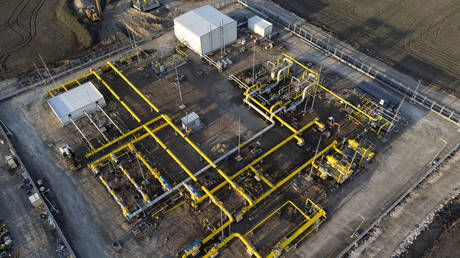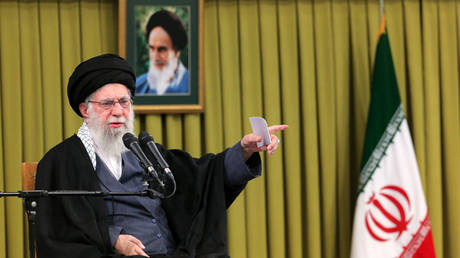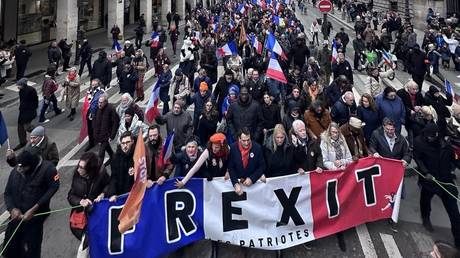
Moscow-proposed payment scheme violates sanctions, European Commission reportedly assessed
The European Commission has told member states that it believes a new scheme, which Russia wants foreign buyers to use to pay for natural gas, will violate the bloc’s sanctions, Bloomberg reported on Thursday citing an anonymous source. Moscow wants all payments to go through one bank and be converted into rubles.
Russia has instructed buyers of its fuel operating in designated “unfriendly nations” to open two accounts in Russia’s Gazprombank, one in euro and one in rubles. The payments for gas would go to the euro account, after which the bank would exchange them into rubles. The state-owned Gazprom will consider the payment complete once the rubles arrive.
Moscow and many European governments have disagreed on whether the scheme breaches the terms of the standing gas contracts. The Commission, the EU’s executive body, presented its preliminary legal assessment of the proposal to national governments of the bloc, Bloomberg said. The analysis reportedly said the Russian proposal substantially deviated from the terms of the contracts and had other flaws.
“Crucially, the mechanism would be in breach of restrictive measures the EU adopted in response to Moscow’s invasion of Ukraine and has applied to the Russian government, its central bank and their proxies,” the outlet said. “The process may also have an impact on other bans on various money-market instruments that could be issued by Gazprombank.”
Russia has explained that it wants to implement the new payment arrangement because it no longer trusts the euro. This came after Western nations seized Russia’s euro-denominated national reserves controlled by Western financial institutions in retaliation for its attack on Ukraine. Moscow called it as an act of robbery.
So far only Hungary has stated that it’s prepared to pay for Russian gas in accordance with the proposed scheme. Foreign Minister Peter Szijjarto outlined that his country didn’t believe it violated the EU’s sanctions regime.
Moscow said it may eventually cut gas supplies to nations that reject the plan, but said it was in no rush to take action now.
Moscow attacked the neighboring state in late February, following Ukraine’s failure to implement the terms of the Minsk agreements signed in 2014, and Russia’s eventual recognition of the Donbass republics of Donetsk and Lugansk. The German and French brokered Minsk Protocol was designed to give the breakaway regions special status within the Ukrainian state.
Russia has since demanded that Ukraine officially declare itself a neutral country that will never join the US-led NATO military bloc. Kiev insists the Russian offensive was completely unprovoked and has denied claims it was planning to retake the two republics by force.




